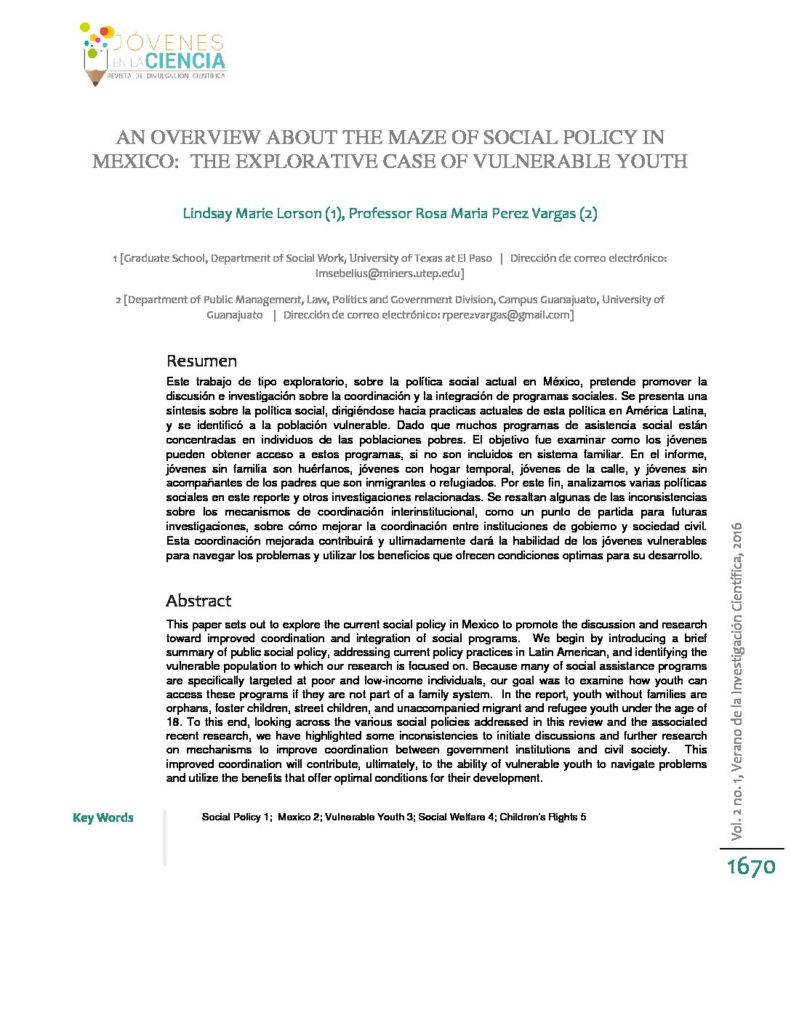
An Overview About the Maze of Social Policy in Mexico: The Explorative Case of Vulnerable Youth
Summary
This paper is published in the journal JÓVENES EN LA CIENCIA and distributed under the terms of Creative Commons BY-NC-ND 4.0 license.
This paper sets out to explore the current social policy in Mexico to promote the discussion and research toward improved coordination and integration of social programs. We begin by introducing a brief summary of public social policy, addressing current policy practices in Latin American, and identifying the vulnerable population to which our research is focused on. Because many of social assistance programs are specifically targeted at poor and low-income individuals, our goal was to examine how youth can access these programs if they are not part of a family system. In the report, youth without families are orphans, foster children, street children, and unaccompanied migrant and refugee youth under the age of 18. To this end, looking across the various social policies addressed in this review and the associated recent research, we have highlighted some inconsistencies to initiate discussions and further research on mechanisms to improve coordination between government institutions and civil society. This improved coordination will contribute, ultimately, to the ability of vulnerable youth to navigate problems and utilize the benefits that offer optimal conditions for their development.
Discussion
Users can discuss this report and make suggestions for future updates. You must be signed in to submit a comment.
No comments
Join the conversation and
Become a Member Existing member loginbecome a member.